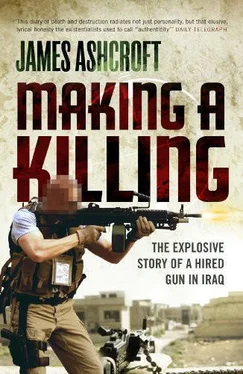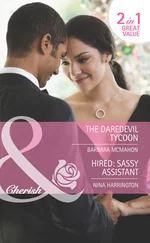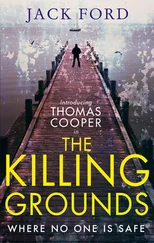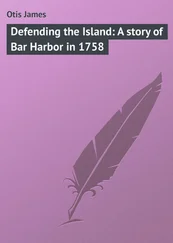Even though Samawah was safe, after dark in the desert there were armed gangs of looters and the Japanese crews were afraid to stray beyond the protection of the Dutch soldiers. As the crews that had wandered furthest from the base started to edge back again, my own nose for a story perked up and I saw a way to give Tanaka-san a stab at his scoop. I liked the guy and, judging from the amount of time he was spending on the satellite phone back to Japan, he was being put under a lot of pressure.
‘Don’t go away,’ I told the Yaapies.
‘Fokkin Engelsman,’ said Wayne, shaking his head.
I took three Iraqis from Tanaka-san’s camera team and we set off with the sat-phone to the edge of the desert just within the city limits. We parked where we had a clear view down the highway so we could spot the JMC’s arrival. The interpreter reported to Tanaka-san that we were in place and I sent a radio check to Cobus. There were no rebro towers down here but in the flat landscape we had excellent comms. Now that night was falling, Samawah didn’t seem quite so safe and the Iraqis with me suddenly had a spot of second thoughts. They were all for driving back and I told them that if they did, they were definitely not getting paid for the whole trip. They shook their heads, lit cigarettes and pondered the lunacy of the white-eyes.
I checked my rifle and pistol and went and made myself comfortable behind some scrub 20 metres away, leaving them all puffing and glowing in the dark. I made sure that I was well hidden from both bandits and Coalition Forces alike. The last thing I wanted was for some sharp-eyed turret gunner with night-vision sights to see me armed and crouching near the side of the road. There was a pale crescent moon low in the sky and absolute silence. After several false alarms, the silence was broken by the sound of the convoy thundering down the road towards us.
The JMC had arrived and I said a quick prayer that none of the Iraqis would take photos. In noisy armoured vehicles, the gunners rarely hear shots when contacted by the enemy. They react to the visual stimuli that might indicate where the enemy is firing from. A flurry of camera flashes on an isolated desert road at night might elicit a spectacular if fatal response. Which, I mused, might prove interesting when they reached the Japanese paparazzi.
I called Tanaka-san, he called Tokyo and his channel broadcast ‘breaking news’ that the JMC convoy was arriving a full five minutes before any other reporter saw them. A friendly Dutch captain at the camp later told me that five minutes before the arrival, all the reporters’ phones were going off with furious producers back in Japan watching Tanaka-san’s channel reporting ‘breaking news’ that the convoy was entering Samawah and asking why the hell their own people had not reported it earlier.
The main excitement next day was following Japanese units as they drove around familiarising themselves with the area. We had a good look at their equipment, noting their rifles, which were unfamiliar to us, and their body armour, which seemed comprehensive. I was impressed by their armoured cars, which superficially resembled up-armoured Humvees. But the hull armour and gunner’s turret was a far better design than the crude, home-made armour I had seen welded on to many American vehicles in Baghdad. Unlike the heavy American Humvees, the Japanese cars also went like shit off a shovel with impressive acceleration.
The JMC were covered in Japanese flags, on their chests, helmets, backs and on each shoulder, identifying them as benefactors, not another delivery of American-Jewish Crusaders. With 24-hour TV coverage broadcasting their every move, every handshake and every wrong turn in Samawah’s busy streets, the soldiers were under enormous pressure. I was impressed to see them go about their business in a very professional manner. When interacting with locals they behaved with such courtesy and consideration it was obvious that they understood the principles and the point of winning hearts and minds in Iraq.
Next day, the press lined up outside another Dutch base on the main street to film a JMC unit driving into and out of the gates. Thrilling stuff. Twenty minutes later, while this was still going on, two donkey carts crashed in painful slow motion, blocking the traffic. The motorists got out of their cars waving fists and yelling while the two maddened donkeys continued braying and kicking. At that moment, like the approach of a tsunami, marchers from a peaceful demonstration demanding free elections began to arrive; by peaceful I mean a howling mob, but no guns. CNN later reported that there were 10,000 demonstrators and that seemed about right to me at ground level. The passion was remarkable, even stirring, wave after wave of young men wailing, waving banners and battering their own heads on large portraits of ayatollahs.
This made good footage, although the braying donkeys and screaming hordes were all drowned out when, by unhappy coincidence, a convoy of thirty oil tankers and a platoon of escorting American military police appeared at the end of the street. They stopped, scanned the scene with binoculars, then stepped down from the vehicles and charged the crowd screaming what the fuck and waving weapons in a bizarre attempt to restore calm and clear the road for their tankers.
The crowd thought that the Americans were there to deny them the right of free elections and the American MPs had the impression that the crowd was there to block the convoy. Two MPs started diplomatically beating the crowd’s spokesman and the officer in charge fired shots into the air. The mob reacted with predictable fury and things got so rowdy I almost missed seeing the Dutch riot platoon deploying out from the gates behind me.
It was complete pandemonium. The Japanese press kept filming, while the South Africans and I stood to one side enjoying the chaos until Tanaka-san grabbed his cameraman, dumped his jacket and ran into the middle of the crowd to do a ‘live-from-the-riot’ broadcast. We piled into the horde, stamping on feet and shoving with elbows and knees. I had never realised how useful a public-school education could be.
The Americans carried on swinging the butts of their rifles and forcing the jammed cars off the road at gunpoint. The mob howled and surged forwards, although once they realised that we were press, in the very heart of the riot we found ourselves left alone in a small circle of peace. The Iraqis love publicity and cameras.
I was still wondering how the disturbance was going to get resolved, when two road workers further up the street put out their fags, picked up their shovels and wandered over to the mountain of sand on the side of the road. Bearing in mind that they were upwind in a gale throwing sand into the back of a high lorry, the first two shovelfuls took to the air and whipped straight across the crowd in a fine gritty mist.
Angry howling at the Americans changed into screams of pain as the distraught Iraqis clutched their eyes. The road workers carried on plying their shovels like lunatics, creating a dust storm, working like no men I had ever seen in Iraq before or since. The Yaapies and I were protected by shades, the same as the Dutch soldiers. Everyone else ran off with their hands over their eyes. Cool. Seizing the moment, the two donkeys stopped braying and began munching on the rubbish piled up on the side of the road.
With the riot over, the American convoy passed through town leaving behind resentment, confusion and an anger that would linger far longer than the dust settling in their wake.
The riot in Samawah was the perfect example of what was going wrong with the occupation of Iraq by Coalition Forces. The American MPs that day had thought they were dealing with a disturbance that required a forceful solution and had treated the people with condescension and incomprehension. The convoy escort officer had terrified the crowd by firing shots in the air and had probably left Samawah believing that he had effected a rapid and successful outcome to a minor outbreak of disorder. Mission accomplished. End of story.
Читать дальше












